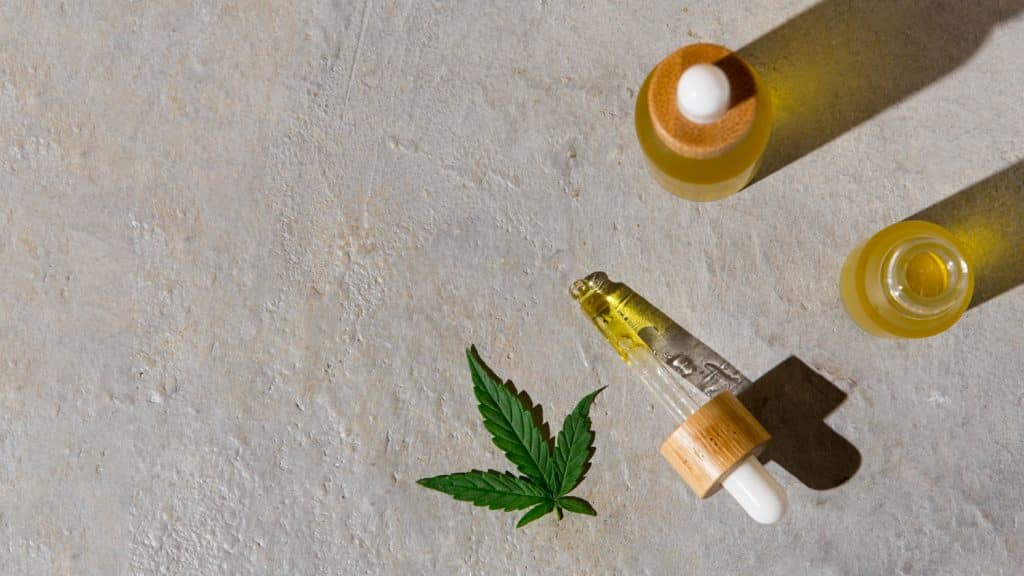Consumers are significantly drawn to the advantages of hemp seed and CBD oils since the Food and Medicine Administration (FDA) approved the first cannabidiol (CBD)-based drug. But what exactly is the distinction between hemp oil and CBD oil?
CBD oil is made from the stalks, leaflets, and flowers of the hemp plant. These have a higher concentration of CBD, a chemical with various potential health advantages.
In the meantime, the hemp seed oil is derived from the seeds of the Cannabis sativa plant. Although the seeds do not contain CBD, they have a high concentration of minerals, fatty acids, and other bioactive components.
The two terms are often used interchangeably, but in reality, they refer to two products with distinct characteristics. Here, we will explore the differences between hemp oil and CBD oil and how they can be used to support your health and wellness.
Hemp Seed Oil
Hemp seed oil is produced from the Cannabis sativa plant’s seeds. It has gamma-linolenic acid, omega-3 and omega-6 fatty acids, and other antioxidants. Additionally, it is rich in vitamin D and B vitamins. Consumers won’t get high from consuming hemp seed oil because it contains no tetrahydrocannabinol (THC) and has minimal CBD.
Uses
Hemp seed oil is not used for leisure activities. This is because the levels of THC and CBD, which provide psychoactive effects, are either low or non-existent. Due to the high levels of gamma-linolenic acid, omega-3 and omega-6 fatty acids, and antioxidants found in hemp seed oil, it is used in many nutritional supplements.
How does it work?
Some claim that hemp seed oils can aid in the maintenance of good cardiovascular health by enhancing the following:
- Triglycerides
- Total cholesterol
- High-density lipoprotein cholesterol
- Low-density lipoprotein cholesterol
Effects and Advantages
When hemp seed oil is added to nutritional products like snack bars, bread, cookies, and yoghurt, it provides a wonderful source of nutrients. It is high in unsaturated fatty acids and necessary amino acids.
The following advantages of hemp seed oil
- Constipation relief
- Offering cardiovascular health advantages
- Treating skin problems by altering the immune system
- Enhancing gastrointestinal health
- Anticancer properties
- Antioxidant properties
- Anti-ageing properties
How is it Created?
Hemp seed oil is extracted from the seeds of the hemp plant by manufacturers. Hemp seed oil does not contain THC because it is derived from the seeds of the cannabis plant rather than the leaves, flowers, or stem.
Risks and Adverse Effects
It is safe to consume hemp seed oil. Contrary to popular opinion, it might not be good for cardiovascular health. Some customers have also reported digestive difficulties. However, these symptoms may not be experienced by everyone.
THC accounts for less than 0.3% of the dry weight of hemp seed oil. Therefore users are unlikely to get high from it.
CBD Oil
CBD oil is available in three varieties on the market:
- All of the components of the cannabis plant, including THC, are present in full-spectrum CBD oil
- THC-free CBD oil with a wide variety of chemical components
- CBD is the single component of CBD oil.
It is significant to note that certain manufacturers may use these phrases synonymously because they are not regulated.
CBD products should always be accompanied by a Certificate of Analysis (COA). A third party normally conducts this testing. Checking the COA is the only way to fully understand what a CBD oil product contains.
Uses
Certain people use CBD oils for their supposed medicinal effects.
People may, for example, use CBD-derived products for:
- Pain and inflammation associated with epilepsy
- Addiction treatment for anxiety and depression
- Inflammatory skin diseases
- Neurodegenerative diseases
- CBD for Arthritis Pain
Aside from CBD’s antiepileptic effects, researchers must yet prove CBD’s other possible therapeutic benefits.
Given that full-spectrum CBD oil contains THC and has high effects, some individuals may use it recreationally. THC may also be used to prevent nausea and vomiting. These oils may also include trace amounts of additional phytocannabinoids and terpenoids, which have unknown effects.
How does it work?
Researchers are trying to figure out how CBD affects the body, but they believe it operates in a variety of ways, including:
- Blocking endocannabinoid reuptake
- Stimulating the transient receptor potential vanilloid 1, which controls pain, and g-coupled receptor 55
- Increases serotonin receptor activity
- The endocannabinoid system’s CB1 receptor binds to the THC in full-spectrum CBD oil, giving it high properties.
The endocannabinoid system’s CB1 receptor binds to the THC in full-spectrum CBD oil, giving it high properties. CBD oils that are full-spectrum or broad-spectrum may also contain beta-caryophyllene, which can bind to CB2 receptors. Researchers are still studying the function of CB2 receptors.
Effects and Advantages
Several components of the various CBD oils have distinct effects. The table below outlines some of the CBD oil components and their potential.
| Component | Effects |
| CBD | antiepilepticpain-relievinganti-inflammatoryantianxietyantidepressiveneuroprotective |
| THC | anti-nauseaanti-inflammatorypain-relieving |
| Beta-caryophyllene | antianxietypain-relieving |
| Limonene | antioxidantantitumor |
| Cannabichromene | pain-relieving |
| Cannabigerol | anti-inflammatoryneuroprotective |
How is it Created?
The flowers and leaves of the plant are used to make CBD oil. Manufacturers can extract high in CBD and other components using sophisticated extraction procedures such as carbon dioxide extraction. Although producers must retain all constituents intact for full-spectrum CBD oil products, CBD isolate requires simply the extraction of CBD.
Risks and Adverse Effects
According to a study, CBD-derived products are harmless and have few side effects. Although there is little evidence on the safety of various CBD oils, researchers have researched the side effects of particular chemicals in CBD-derived products.
When participants consumed 300 milligrammes (mg) of CBD per day for up to 6 months, there were no reported negative effects. Research also found no negative effects when participants took up to 1,500 mg daily for a month.
Larger studies on Epidiolex, a CBD drug used to treat epilepsy, revealed certain unfavourable side effects. These were some examples:
- Fatigue
- Reduced appetite
- Diarrhoea abnormal liver function testing
Experts advise those who want to utilise CBD-derived products to be sure their supplier is trustworthy. In CBD isolate, or broad-spectrum CBD oil, incorrect labelling and defective production techniques might expose patients to toxins or THC.
Product labelling standards in the United States are still unknown. Experts recommend selecting a good and safe product by ensuring the following:
- The industry did not use solvents during the extraction process
- The US Department of Agriculture certified it as organic.
- The product was subjected to pesticide and herbicide testing.
- The potency is specified explicitly on the label.
People who want to use CBD oils or other CBD-derived products should first speak with a doctor or registered cannabis clinician, as CBD can interfere with certain medications.
Summary
Hemp seed oil and CBD oil are both derived from the cannabis plant. CBD oil is derived from the cannabis plant’s flowers, leaves, and stems, whereas hemp seed oil is derived from the cannabis plant’s seeds.
Hemp seed and CBD oil products do not normally create a high since the quantities of THC, if any, are very low. CBD oil and hemp seed oil have various potential health benefits, but due to insufficient research, experts must continue investigating them.





